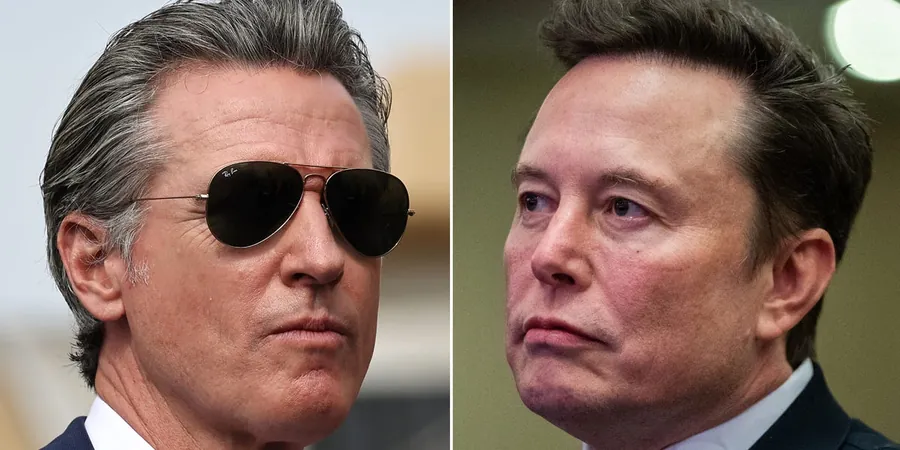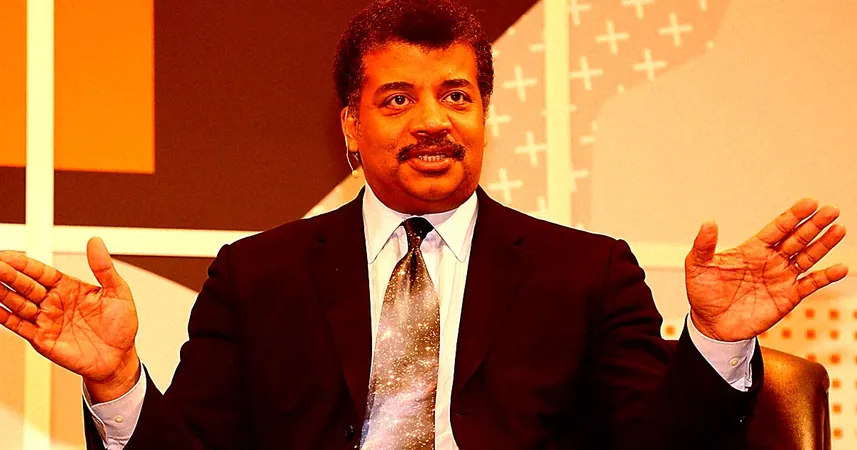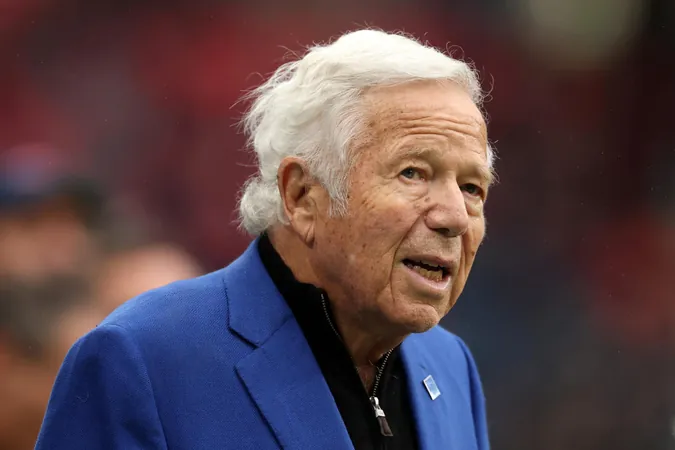
California's Game-Changing EV Rebate Proposal: Will Tesla Miss Out?
2024-11-26
Author: Ming
Overview of California's EV Rebate Proposal
In a bold move, California Governor Gavin Newsom is set to revive the state's electric vehicle (EV) rebate program as a safeguard against potential cuts to the federal tax credit for EV buyers by the incoming Trump administration. However, this initiative may inadvertently leave out the biggest player in the EV market: Tesla.
Federal Tax Credit Concerns
As concerns rise about the future of the federal electric vehicle tax credit, which currently provides a substantial $7,500 rebate to eligible buyers, Newsom announced on Monday that California would take action should the credit be eliminated. "We will intervene if the Trump Administration eliminates the federal tax credit, doubling down on our commitment to clean air and green jobs in California," Newsom stated. "We're not turning back on a clean transportation future – we're going to make it more affordable for people to drive vehicles that don't pollute."
Funding Sources for the Rebate Program
Funding for this renewed rebate program would come from California's Greenhouse Gas Reduction Fund, sourced from polluting industries under a cap-and-trade initiative. This funding aims to incentivize buyers to choose environmentally friendly vehicles while continuing California's commitment to combat climate change.
Potential Exclusion of Tesla
However, the proposal comes with a twist: Tesla may be excluded from this rebate due to an anticipated market-share cap. Recent reports indicate that the state may set specific thresholds for manufacturers, potentially disqualifying those with substantial control over the market. Notably, Tesla captured 55% of all new electric vehicle registrations in California during the first three quarters of 2024. In stark contrast, competitors like Hyundai and BMW held only 5.6% and 5%, respectively.
California's Market Competition Goals
California's goal with such caps would purportedly be to foster a competitive landscape within the EV sector. Despite Tesla's substantial presence in the market, the company's sales have seen a decline even amidst a boom in overall EV sales in the state. This drop—down from 64% to 55% market share year-over-year—has raised eyebrows and could influence how the rebate program is structured.
Elon Musk's Response
Elon Musk himself criticized the potential exclusion of Tesla from the rebate program, calling the proposal "insane" on his social media platform. Interestingly, while he has previously supported the elimination of the federal tax credit, Musk suggested that doing so could inadvertently benefit Tesla by handicapping its competitors.
Strategic Implications for Tesla
Moreover, ending the federal tax incentive could serve as a long-term strategy to stabilize Tesla's position in the market by limiting competitors' growth. Musk recently noted during an earnings call that such a move may indeed turn out favorable for Tesla, albeit potentially harmful to rivals.
Governor Newsom's Stance
As the Trump administration gears up, Newsom has positioned himself as a vocal opponent to federal policies that conflict with California's environmental goals. In the wake of Trump's election, he urged state lawmakers to convene urgently to safeguard California's progressive values from potential rollback.
Conclusion and Future Considerations
The fate of the EV rebate program and Tesla's role within it remains to be seen, but one thing is clear: California is determined to lead the charge towards a greener future, even amid political uncertainty. Will this spark innovation, or will it create divides within the EV market? Only time will tell!





 Brasil (PT)
Brasil (PT)
 Canada (EN)
Canada (EN)
 Chile (ES)
Chile (ES)
 España (ES)
España (ES)
 France (FR)
France (FR)
 Hong Kong (EN)
Hong Kong (EN)
 Italia (IT)
Italia (IT)
 日本 (JA)
日本 (JA)
 Magyarország (HU)
Magyarország (HU)
 Norge (NO)
Norge (NO)
 Polska (PL)
Polska (PL)
 Schweiz (DE)
Schweiz (DE)
 Singapore (EN)
Singapore (EN)
 Sverige (SV)
Sverige (SV)
 Suomi (FI)
Suomi (FI)
 Türkiye (TR)
Türkiye (TR)